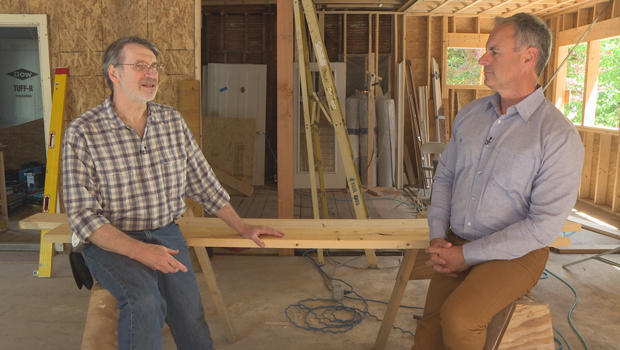
Dec 8, 2017 | Article
With NH currently facing a workforce shortage that is only expected to grow more serious in the next few years, the HR State Council of New Hampshire has become an increasingly important and vocal resource.
“Our focus is to support the HR community through legislative efforts, networking events and a variety of HR related initiatives, including workforce readiness,” said Tim Dabrieo, Director, HR State Council of New Hampshire.
In discussing the connection between HR professionals and workforce development issues, Dabrieo said they are the ones who “do the hiring.”
“They can’t find people,” he said. “We need to get HR professionals past today and thinking about three years from now.”
According to Robyn Chadwick, Director of Workforce Readiness, an initiative of the HR State Council, one way to assist the HR community is by helping schools better connect with industry. Career days, she said, represent one such resource.
“These are events where employers can come into schools and discuss what they do, what they need, and opportunities that exist right now at their company,” she said. “These events are increasingly important resources for schools and industry.”
Dabrieo agreed and said another area of focus for the HR State Council is to help secondary schools develop meaningful internships and work-based opportunities for students.
“We want to help employers take a more active role in helping develop curriculums that meet workforce needs—whether it is in healthcare, hospitality, manufacturing or other key industries,” he said.
Chadwick added, “It’s about career pathways and sparking that interest in students.”
In addition to helping connect industry leaders with educators, Chadwick said the HR State Council hosts numerous workforce readiness presentations for students.
“They run the full gamut—from how to do a handshake to resume writing, how to dress, set up a LinkedIn profile, create a proper email address or set up appropriate social media accounts,” she said. “We do mock interviews, too.”
In looking to the future, Chadwick said they the HR State Council is part of a broader HR-focused statewide initiative.
“We have educators, industry leaders, and other stakeholders working together and sharing resources to meet the workforce needs of today and tomorrow,” she said. “We can’t work in silos.”
An affiliate of the Society for Human Resource Management (SHRM), the HR Council is joined in this collaborative effort by Manchester Area Human Resource Association (MAHRA), Seacoast Human Resource Association (SHRA) and other SHRM Chapters across the state as well as BIA of NH, Reaching Higher NH, Stay, Work Play, NH Department of Business and Economic Affairs and the Department of Education among others.
As part of this group, which is currently divided into various task forces that will analyze and develop possible solutions to the workforce development gaps that face NH, Chadwick expressed optimism about a possible summit next summer.
“We want to bring teachers in and businesses together to help educate teachers on what really happens day to day inside their businesses what they do,” she said. “We need industry and educators working together to build curricula that align with career opportunities available to the incoming workforce.”
According to Chadwick, the need for collaborative, HR-focused solutions is not theoretical either.
“I’m the Human Resources Manager at Normandeau Associates, a national environmental consulting firm, and I see the need for these solutions today,” she said. “We need young professionals to stay here and keep working here.”
Dabrieo added, “We have talked to CEOs and presidents, and they are all facing hiring challenges…The role of the HR State Council is to help facilitate conversations between industry and educators. We don’t need to reinvent any wheels. We have resources. We just need to let the right people know about them.”
To learn more about the HR State Council of New Hampshire, visit https://nhstatecouncil.shrm.org.

Nov 27, 2017 | Article, Uncategorized
With unemployment rates at historic lows, every sector in industry is struggling with workforce development questions and challenges, which led to a “Conversation Café” this past summer at which numerous stakeholders weighed in on the issue.
The brainstorming session was spearheaded by the New Hampshire HR Council, the Manchester Area Human Resource Association (MAHRA) and Seacoast Human Resource Association in response to a directive from the Society for Human Resource Management (SHRM). In July of 2016 at the 2016 Democratic National Convention, SHRM President and CEO Henry G. “Hank” Jackson stated, “Two-thirds of HR professionals are having a tough time recruiting skilled workers. The skills shortage in the U.S. is a growing problem and will take innovative efforts of government, educational institutions and employers.”1
According to session attendee Doug Cullen, Manager of Career Services at Pinkerton Academy in Derry, there was strong CTE representation.
“We had 2 CTE center directors, 2 staff from Department of Education Bureau of Career Development, the Apprenticeship Bureau, and Community College system,” he said.
The purpose behind the “conversation” was to initially explore how to get a better trained workforce into industry and the appropriate kinds of training and avenues to make that happen in the short-term. As a result of the discussions that took place, five key concepts were raised that the group will explore as the basis for future workforce development and training solutions.
Best practices in experiential and work-based learning opportunities.
How employers can step up (possibly be involved in) designing curriculum to meet industry needs.
Understanding Department of Labor requirements for internships.
Highlighting effective career services possible between schools and businesses.
Identifying training partnerships with businesses.
The group discussions were facilitated by BIANH, Bureau of Career Development, one of the CTE directors, and Reaching Higher NH.
“One thing we are looking at very closely is how to design training mechanisms—mini-videos, off-the-shelf curriculums or other interventions—that can be customized to suit specific needs in industry,” said Cullen, who also served as facilitator.
In furtherance of this effort, a focused task force was formed in October to drill down further into possible solutions with the objective to bridge the gaps between a future workforce pipeline and people to fill it. Cullen said this HR-focused group involves other related efforts, including the Career Pathways State Steering Committee, 2025 Accelerator, 65 x 25, Sector Partnerships Initiative and others.
“We are all facing the same issue, so it makes sense to get us all together in the same room at the same time,” he said.
As for why he became involved in this initiative, Cullen said he wanted to proactively work to solve these larger employment and economic development challenges with many of the people he and others are most likely to encounter when attempting to bridge these gaps.
“I’m not just talking to the engineers, manufacturers or construction foreman, I’m talking with someone from HR,” he said. “We need to get out in front of this as we’re already fighting such significant employment challenges.”

Nov 20, 2017 | Building & Construction Trades, Tid Bits
It’s been a month since Hurricane Harvey devastated the city of Houston and Southeast Texas. Damage estimates go up to $190 billion. The cleanup has begun, but a major shortage is looming for the rebuilding effort. It’s not a lack of will, or money; it’s a lack of skilled labor … a national shortage that’s reaching a crisis stage. full article
Nov 20, 2017 | Article, Automotive
Nicholas Raynes of Exeter received a $1,000 scholarship from the New Hampshire Automotive Education Foundation (NHAEF). He was given an additional $1,500 scholarship last year. Nick is in his second year at Nashua Community College, where he is pursuing an associate degree in automotive technology. In addition to his studies, Nick is working in the service department at AutoFair Hyundai in Manchester.
He graduated from Exeter High School in June 2016, taking automotive technology courses at the Seacoast School of Technology in Exeter. An auto tech career is high tech with high wages and low tuition at NH’s Community Colleges. Techs in NH make $58,000 on average and there are over 400 jobs that need to be filled. NH’s community colleges offer 2-year associates degrees in auto tech for roughly $20,000 including the cost of tools. Scholarships like NHADA’s lower that cost even more. Auto tech students can leave school with no or low debt if they take advantage of paid internships, as well as summer full time employment.
The NHAEF has awarded $315,500 in scholarships since its inception. It is a not-for- profit affiliate of the New Hampshire Automobile Dealers Association (NHADA), a statewide trade association with a staff of 31 professionals, representing approximately 500 businesses in the motor vehicle industry with over 14,000 employees. NHADA members run the entire gamut of the motor vehicle industry, including new-car and -truck dealers; motorcycle and recreational vehicle dealers; farm, power, and construction equipment dealers; used-vehicle dealers and recyclers; repair shops, body shops, and parts stores; and other companies that have ties with the motor vehicle industry. Annual retail sales for all members are in excess of $3.8 billion and account for over 24 percent of all retail sales in New Hampshire. More information can be found at www.nhada.com. NHADA also includes affiliate organizations: the NHADA Workers’ Compensation Trust; NHAD Services, Inc., and NHAD Insurance Trust.




